Filter by
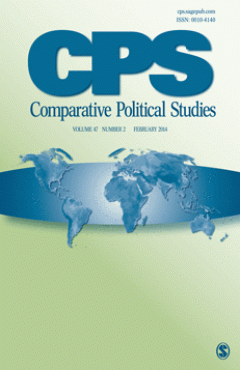
Comparative Political Studies, Volume 50, Number 1, January 2017
- Edition
- -
- ISBN/ISSN
- 00104140
- Collation
- -
- Series Title
- -
- Call Number
- -
- Edition
- -
- ISBN/ISSN
- 00104140
- Collation
- -
- Series Title
- -
- Call Number
- -
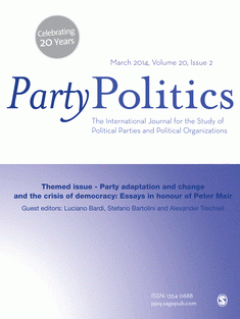
Party Politics, Volume 23, Issue 3, May 2017
- Edition
- -
- ISBN/ISSN
- -
- Collation
- -
- Series Title
- -
- Call Number
- -
- Edition
- -
- ISBN/ISSN
- -
- Collation
- -
- Series Title
- -
- Call Number
- -

Party Politics, Volume 23, Issue 2, March 2017
- Edition
- -
- ISBN/ISSN
- 13540688
- Collation
- -
- Series Title
- -
- Call Number
- -
- Edition
- -
- ISBN/ISSN
- 13540688
- Collation
- -
- Series Title
- -
- Call Number
- -
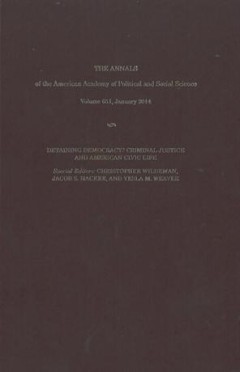
The ANNALS of the American Academy of Political and Social Science, Volume 67…
- Edition
- -
- ISBN/ISSN
- 0002-7162
- Collation
- -
- Series Title
- -
- Call Number
- -
- Edition
- -
- ISBN/ISSN
- 0002-7162
- Collation
- -
- Series Title
- -
- Call Number
- -

The ANNALS of the American Academy of Political and Social Science, Volume 66…
- Edition
- -
- ISBN/ISSN
- 0002-7162
- Collation
- -
- Series Title
- -
- Call Number
- -
- Edition
- -
- ISBN/ISSN
- 0002-7162
- Collation
- -
- Series Title
- -
- Call Number
- -

Social Research: An International Quarterly, Volume 83, Number 4 (Winter 2016)
- Edition
- -
- ISBN/ISSN
- 0037-783X
- Collation
- -
- Series Title
- -
- Call Number
- -
- Edition
- -
- ISBN/ISSN
- 0037-783X
- Collation
- -
- Series Title
- -
- Call Number
- -
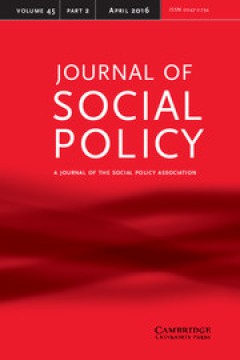
Journal of Social Policy, Volume 45 - Issue 4 - October 2016
- Edition
- -
- ISBN/ISSN
- 0047-2794
- Collation
- -
- Series Title
- -
- Call Number
- -
- Edition
- -
- ISBN/ISSN
- 0047-2794
- Collation
- -
- Series Title
- -
- Call Number
- -
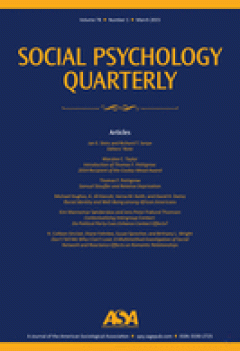
Social Psychology Quarterly,Volume 80, Issue 1, March 2017
- Edition
- -
- ISBN/ISSN
- 01902725
- Collation
- -
- Series Title
- -
- Call Number
- -
- Edition
- -
- ISBN/ISSN
- 01902725
- Collation
- -
- Series Title
- -
- Call Number
- -

Social Psychology Quarterly, Volume 79, Issue 4, December 2016
- Edition
- -
- ISBN/ISSN
- 01902725
- Collation
- -
- Series Title
- -
- Call Number
- -
- Edition
- -
- ISBN/ISSN
- 01902725
- Collation
- -
- Series Title
- -
- Call Number
- -
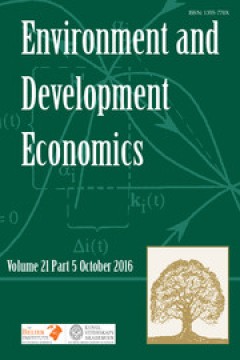
Environment and Development Economics,Volume 21 - Issue 6 - December 2016
- Edition
- -
- ISBN/ISSN
- 1355770X
- Collation
- -
- Series Title
- -
- Call Number
- -
- Edition
- -
- ISBN/ISSN
- 1355770X
- Collation
- -
- Series Title
- -
- Call Number
- -

Party Politics, Volume 23, Issue 1, January 2017
- Edition
- -
- ISBN/ISSN
- 13540688
- Collation
- -
- Series Title
- -
- Call Number
- -
- Edition
- -
- ISBN/ISSN
- 13540688
- Collation
- -
- Series Title
- -
- Call Number
- -
Cooperating without Co-laboring: How Formal Organizational Power Moderates Cr…
I examine how different distributions of ownership and governance rights in firms affect the optimal organization of cross-functional project teams for knowledge-intensive work. I analyze multi-method data from two competing automated manufacturing equipment engineering firms with contrasting formal power structures, one a worker cooperative with ownership and governance rights distributed acro…
- Edition
- Volume 62, Issue 1, March 2017; pp. 179–214
- ISBN/ISSN
- 0001-8392
- Collation
- -
- Series Title
- Administrative Science Quarterly
- Call Number
- -
The Non-consensus Entrepreneur: Organizational Responses to Vital Events
- Edition
- Volume 62, Issue 1, March 2017; pp. 140–178
- ISBN/ISSN
- 0001-8392
- Collation
- -
- Series Title
- Administrative Science Quarterly
- Call Number
- -
- Edition
- Volume 62, Issue 1, March 2017; pp. 140–178
- ISBN/ISSN
- 0001-8392
- Collation
- -
- Series Title
- Administrative Science Quarterly
- Call Number
- -
Prominent but Less Productive: The Impact of Interdisciplinarity on Scientist…
Federal agencies and universities in the U.S. promote interdisciplinary research because it presumably spurs transformative, innovative science. Using data on almost 900 research-center�based scientists and their 32,000 published articles, along with a set of unpublished papers, we assess whether such research is indeed beneficial and whether costs accompany the potential benefits. Existing res…
- Edition
- Volume 62, Issue 1, March 2017; pp. 105–139
- ISBN/ISSN
- 0001-8392
- Collation
- -
- Series Title
- Administrative Science Quarterly
- Call Number
- -
The Dynamics of Political Embeddedness in China
Economic transitions in countries that move from state planning and redistribution to market exchange create business opportunities but also uncertainty, because many interdependent factors�modes of exchange, types of products, and forms of organizations�are in flux. Uncertainty is even greater when the country�s political institutions remain authoritarian because the rule of law is weak and st…
- Edition
- Volume 62, Issue 1, March 2017; pp. 67–104
- ISBN/ISSN
- 0001-8392
- Collation
- -
- Series Title
- Administrative Science Quarterly
- Call Number
- -
It’s about Time! CEOs’ Temporal Dispositions, Temporal Leadership, and Co…
How CEOs think and feel about time may have a big influence on their firms� strategies. We examine how two distinct CEO temporal dispositions�time urgency (the feeling of being chronically hurried) and pacing style (one�s pattern of effort over time in working toward deadlines)�each influence corporate entrepreneurship, a key strategic behavior. We propose that CEOs� temporal leadership�how the…
- Edition
- Volume 62, Issue 1, March 2017; pp. 31–66
- ISBN/ISSN
- 0001-8392
- Collation
- -
- Series Title
- Administrative Science Quarterly
- Call Number
- -

Journal of Public Policy, Volume 37 - Issue 1 - March 2017
- Edition
- -
- ISBN/ISSN
- 0141-814X
- Collation
- -
- Series Title
- -
- Call Number
- -
- Edition
- -
- ISBN/ISSN
- 0141-814X
- Collation
- -
- Series Title
- -
- Call Number
- -
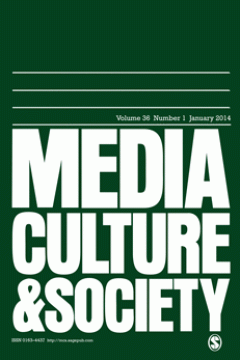
Media Culture & Society, Volume 39, Issue 3, April 2017
- Edition
- -
- ISBN/ISSN
- 0163-4437
- Collation
- -
- Series Title
- -
- Call Number
- -
- Edition
- -
- ISBN/ISSN
- 0163-4437
- Collation
- -
- Series Title
- -
- Call Number
- -

Media Culture & Society,Volume 39, Issue 2, March 2017
- Edition
- -
- ISBN/ISSN
- 0163-4437
- Collation
- -
- Series Title
- -
- Call Number
- -
- Edition
- -
- ISBN/ISSN
- 0163-4437
- Collation
- -
- Series Title
- -
- Call Number
- -

Media Culture & Society, Volume 39, Issue 1, January 2017
- Edition
- -
- ISBN/ISSN
- 0163-4437
- Collation
- -
- Series Title
- -
- Call Number
- -
- Edition
- -
- ISBN/ISSN
- 0163-4437
- Collation
- -
- Series Title
- -
- Call Number
- -
 Computer Science, Information & General Works
Computer Science, Information & General Works  Philosophy & Psychology
Philosophy & Psychology  Religion
Religion  Social Sciences
Social Sciences  Language
Language  Pure Science
Pure Science  Applied Sciences
Applied Sciences  Art & Recreation
Art & Recreation  Literature
Literature  History & Geography
History & Geography